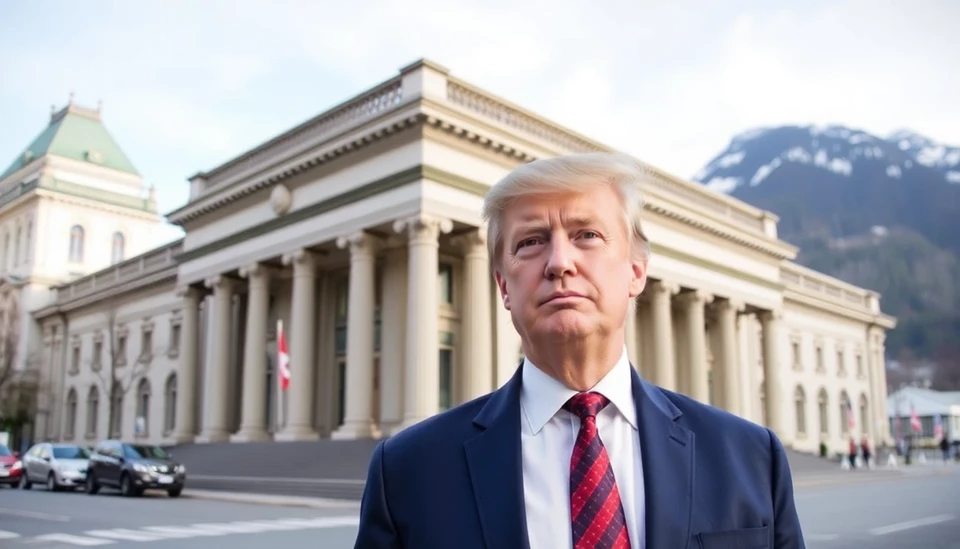
Argentina’s Central Bank Intervenes in Currency Market to Support Peso
In a bold move to stabilize its embattled currency, Argentina's central bank has reportedly sold up to $400 million in a single day. This decision comes amidst escalating fears surrounding the peso's devaluation, which has been significantly impacted by ongoing economic turmoil and dwindling foreign reserves.
Continue reading
Nigeria Stands Isolated as Other African Nations Sidestep Tariff-Induced Currency Interventions
In a striking display of fiscal policy divergence, Nigeria finds itself isolated as numerous African countries choose to disregard the effects of tariff-related foreign exchange interventions. This situation is primarily rooted in Nigeria’s struggle with inflation and fluctuating currency rates, which have considerably affected the naira, the country's official currency.
Continue reading
Hungary's Economic Challenge: Government Interference Spreads from Bonds to Banking Sector
In a significant turn of events, Hungary is broadening its interventionist policies as the nation grapples with a slowing economy. The government, which previously asserted control over the bond markets, is now extending its reach into the banking sector, raising concerns among economists and investors about the potential repercussions on financial stability.
Continue reading
Swiss National Bank Stays Out of Currency Interventions Following Trump Victory
The Swiss National Bank (SNB) decided against intervening in the foreign exchange markets in the wake of Donald Trump's surprising win in the recent presidential election. Analysts were closely monitoring the situation, as the outcome could have had significant implications for currencies globally.
Continue reading
China Takes Action Against Walmart: Price Cut Controversy Sparks Government Intervention
In a striking development within the retail sector, Chinese authorities have summoned representatives from Walmart following reports that the global retail giant was being pressured to lower prices on essential goods. This situation underscores the intense scrutiny that large corporations face in China's burgeoning economy, particularly in volatile market conditions.
Continue reading
Global Economic Policy Undergoes Significant Revisions in Response to Changing Landscape
In a notable shift from traditional economic policy frameworks, countries across the globe are re-evaluating and altering their economic doctrine in light of recent challenges. From Washington to Berlin, policy-makers are recognizing the necessity for adaptive strategies that address both immediate economic pressures and long-term sustainability concerns. This reworking reflects a growing consensus on the importance of flexibility in economic planning and a departure from rigid adherence to previous models.
Continue reading
The Surge of Autism Treatments: America’s Fastest Growing Healthcare Expense
In an era where healthcare costs continue to soar, autism treatments have emerged as one of the fastest growing categories of expenditure within the United States. A recent analysis highlights that spending on autism-related interventions has surged dramatically in the past few years, raising pressing questions about the sustainability of such growth and the healthcare system's ability to cope with the rising demand.
Continue reading
How New Medications Are Disrupting Decarbonization Predictions
In a surprising twist to the ongoing efforts to combat climate change, two new medications, DeepSeek and Ozempic, are emerging as unexpected factors complicating future decarbonization forecasts. As the world intensifies its commitments to reduce carbon emissions, particularly in the wake of global environmental crises, these drugs are raising questions about their indirect influence on energy consumption and carbon footprint.
Continue reading
Swiss National Bank's Successful Interventions Pave the Way for Future Economic Stability
The Swiss National Bank (SNB) recently reiterated its readiness to intercede in the currency markets following a noteworthy period of intervention that stabilized the Swiss franc. According to SNB board member Andrea Schlegel, the bank's actions have clearly demonstrated their efficacy and will be employed again if necessary to uphold monetary policy and economic balance.
Continue reading
Switzerland's Central Bank Confronts Dilemma in Currency Management
The Swiss National Bank (SNB) is currently navigating a complex landscape as it evaluates its strategies for managing the Swiss franc's strength. According to comments made by former SNB Chairman Philipp Hildebrand, the bank is facing a delicate trade-off among various monetary tools aimed at curbing the currency's appreciation. This situation arises amid ongoing economic challenges and changing global financial dynamics.
Continue reading